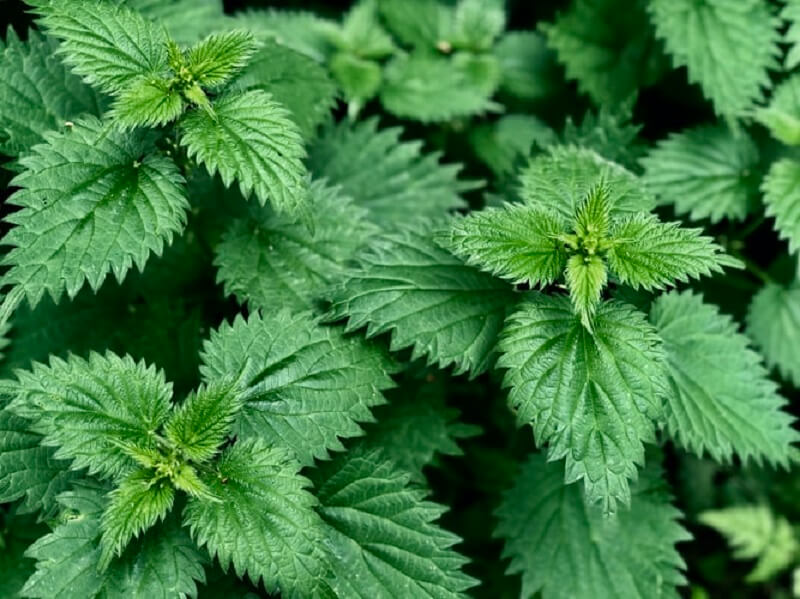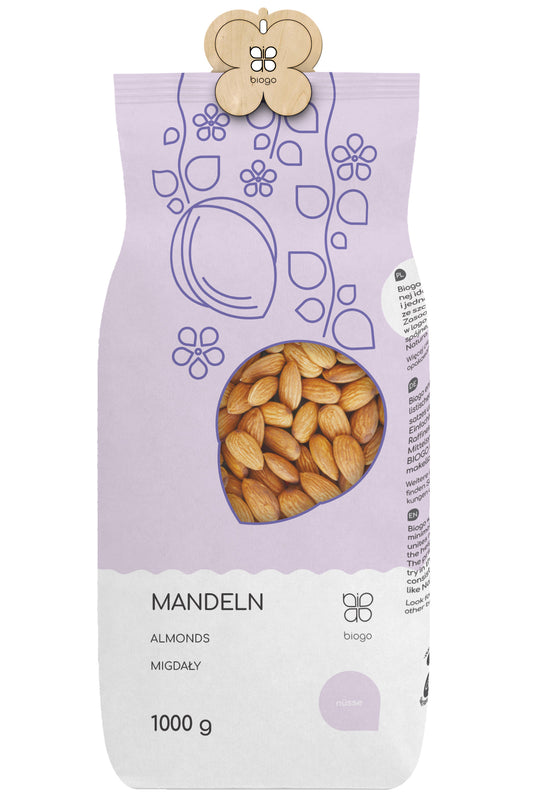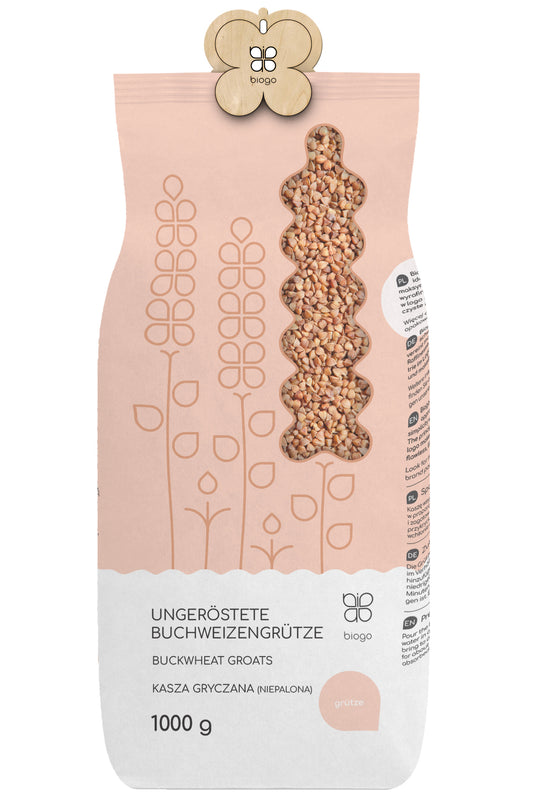Contents:
- Properties of nettle
- Nettle for better digestion
- Effects on the excretory system and kidneys
- Effects on the skin
- Supporting the treatment of asthma
- Nettle and allergies
- Contraindications
The stinging nettle is a common plant and, upon close contact, is often accompanied by unpleasant blisters, burning, or pain. It is found practically all over the world. It can be found in fields, meadows, forests, and gardens. It grows to about 40 to even 160 centimeters tall and blooms from June to October. It is a perennial plant and contains a number of health-promoting nutrients that have been used in natural medicine for centuries.
Properties of nettle
Nettle can be used in a variety of ways. Various teas made from or with nettle are available on the market. Extracts and essential oils, as well as salads made from them, are also popular. However, if you use it in a salad, remember to first soak it in hot water to deactivate the toxins responsible for burning and pain. After such processing, it is an excellent food additive. Interestingly, it contains up to seven times more vitamin C than citrus fruits, a similar amount of calcium to cheese, and up to three times more iron than the same amount of spinach. It can also be used in the form of leaf compresses for sore joints or muscles. Despite the blistering and burning effects, its supportive effect in the treatment of these conditions has been scientifically proven. It contains many B vitamins, as well as vitamins K and A, and essential oils. Nettle also contains minerals such as potassium, silicon, calcium, magnesium, and iron. Like most leafy plant parts, they also contain: chlorophyll, tannin and amine compounds, as well as phytosterols, which are particularly important for patients with elevated LDL cholesterol and triglyceride levels.
The rhizome of this plant itself also contains a number of chemicals that are beneficial to our health. The most important of these are saccharides, tannins, and sterols, which have a positive effect on lipid metabolism. We also find amino acids necessary for the proper functioning of the body, flavonoids, and a number of antioxidants that slow the aging process and degeneration of the nervous system.
Nettle for better digestion
The most popular are infusions of fresh or dried nettle leaves , as well as all types of teas containing nettle leaves. It helps speed up metabolism and also increases appetite. Its cleansing effect on the digestive system includes removing bile deposits and has a positive effect on the functions of the liver, stomach, and intestines. Nettle is used for diseases of the liver and digestive tract, gastritis and enteritis, and diarrhea.
Nettle owes its anti-inflammatory effect to the formic acid contained in the flammable parts of the plant. This acid relieves joint and muscle pain, including rheumatic and arthritic pain.
Effects on the excretory system and kidneys
Nettle infusions have been shown to effectively reduce the risk of kidney stones due to their diuretic properties. They increase the amount of urine excreted by the kidneys. Furthermore, they facilitate elimination from the body. Furthermore, dietary supplements and infusions made from this plant help with inflammation of the urinary tract and bladder.
Interestingly, the substances contained in nettle, as well as fennel and alfalfa, can have a positive effect on the milk production of breastfeeding women.
Effects on the skin
Due to its astringent and cleansing properties, it's ideal for face masks or compresses. In this form, it dries out bumps and closes pores. It's helpful for conditions like psoriasis, lichen, and skin inflammations, including acne and more. Nettle extract also makes an excellent disinfectant mouthwash. You can also massage your scalp with a nettle infusion. This reduces the intensity of seborrhea and prevents excessive dandruff formation.
Supporting the treatment of asthma
Nettle infusion has an expectorant effect, meaning it can help cough up mucus from the bronchi and trachea, which can relieve bronchial symptoms and reduce asthma attacks.
Nettle and allergies
Due to its content of tyrosine derivatives, it is recommended for allergy sufferers. These have antihistamine properties and can prevent allergic reactions. However, don't overuse them, as the effect may be the opposite. It has been shown that substances contained in nettle can trigger allergies when applied directly to the skin in excessive amounts. However, this is relatively rare.
Nettle also has a beneficial effect on spinal pain, but that's not all. Diseases like gout lead to excessive deposition of uric acid in joints or periarticular tissues. Infusions and dietary supplements containing nettle leaf extracts can help reduce the amount of urate deposits and also support their excretion from the body.
The same applies to anemia. Due to its high iron content, nettle oil , as a natural source, can serve as an alternative to iron supplements. However, keep in mind that the iron contained in plant matter is not absorbed to the same extent as that found in animal tissues. Nevertheless, it increases the production of red blood cells (erythrocytes), which is important for improving blood parameters, especially in cases of weakness and anemia. It can slightly lower blood pressure and blood sugar levels, thus supporting the performance of the pancreas (insulin), which can be helpful for diabetics. Due to its high mineral content and its ability to support lactation, it is also recommended for pregnant women.
We mustn't forget its significant influence in the treatment of prostate diseases. The European Commission and the European Scientific Cooperative Society of Phytotherapy (ESCOP) recommend the consumption of nettle infusions and extracts for the prevention and support of pharmacotherapy for prostatic hyperplasia in men. This is due to its diuretic and anti-inflammatory effects. This is due to chemical compounds found in the nettle root, but also in smaller amounts in the leaves. These are lectins and polysaccharides that inhibit aromatase activity. It is a key enzyme in the conversion of androgens to estrogens, that is, male sex hormones into female ones. Reducing the activity of this enzyme can be helpful in treating prostate enlargement.
Contraindications
There are several cases in which we should limit the use of nettle preparations. The first group is women struggling with reproductive system disorders, such as cancer, fibroids, and bleeding. Also, keep in mind not to use nettle preparations for long periods of time, as they can be toxic to the liver and kidneys. It's worth mentioning here that patients with kidney disease should strictly avoid nettle in their diet, as well as after surgery.
It's also worth being careful when harvesting nettles, as all parts are covered with hairs that can potentially penetrate our bodies and cause burns. This is due to inflammatory substances (histamine, acetylcholine, formic acid).
Nettle isn't just a weed or a "burning" plant, but a source of potentially health-promoting substances. Keep in mind, however, that nettle infusions, oils, extracts, and dietary supplements cannot replace appropriate treatment on their own, but they work excellently as a complement. Furthermore, it's worth incorporating nettle in any form into your daily diet, in moderation, of course.
THE PUBLISHER'S CHOICE
Dried dates 1 kg BIOGO
- £4.00
£5.00- £4.00
- Unit price
- / per
Almonds 1 kg BIOGO
- £11.00
£13.00- £11.00
- Unit price
- / per
Peeled sunflower seeds 1 kg BIOGO
- £3.00
£4.00- £3.00
- Unit price
- / per
Dried organic mango 400 g BIOGO
- £10.00
- £10.00
- Unit price
- / per
Dried White Mulberries 500 g ORGANIC
- £6.00
£7.00- £6.00
- Unit price
- / per
Popcorn (corn kernels) organic 1 kg BIOGO
- £6.00
- £6.00
- Unit price
- / per
Organic Ground Turmeric 500 g BIOGO
- £6.00
- £6.00
- Unit price
- / per
Milk thistle seeds 1 kg BIOGO
- £4.00
- £4.00
- Unit price
- / per
Organic cashew nuts 1 kg BIOGO
- £18.00
- £18.00
- Unit price
- / per
Unpeeled buckwheat groats 1 kg BIOGO
- £3.00
£3.00- £3.00
- Unit price
- / per







































































































































